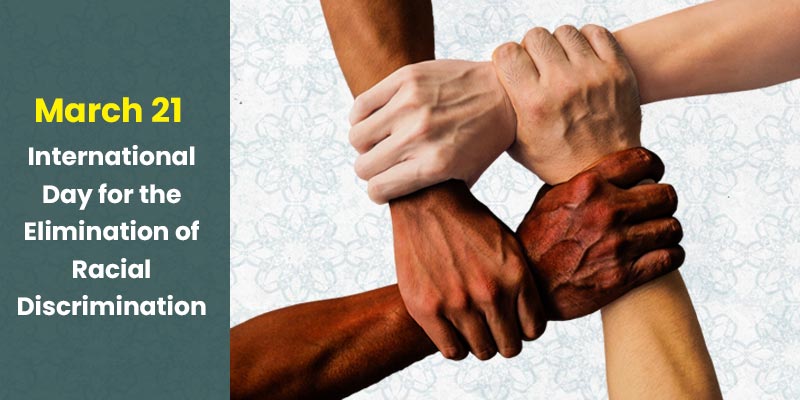- World
- Mar 21
Explainer - 60 years of anti-racism Convention
• The UN observes the International Day for the Elimination of Racial Discrimination on March 21.
• It is observed annually on the day the police in Sharpeville, South Africa, opened fire and killed 69 people at a peaceful demonstration against apartheid “pass laws” in 1960.
• This year’s theme is ‘60th anniversary of the International Convention on the Elimination of All Forms Racial of Discrimination (ICERD)’.
60 years of the anti-racism Convention
• On December 21, 1965, the United Nations General Assembly adopted the International Convention on the Elimination of All Forms of Racial Discrimination (ICERD), marking a groundbreaking step in the global effort to eradicate racism.
• As the first of the UN’s core international human rights treaties, ICERD set the stage for future human rights advancements.
• It is the first of nine human rights treaties that countries can ratify, by committing to fulfill the specific human rights obligations they contain.
• The Committee on the Elimination of Racial Discrimination (CERD) is the group of independent experts who oversees the implementation of ICERD.
• CERD periodically reviews the performance of countries that have ratified ICERD and publishes recommendations.
• CERD can receive complaints about alleged violations of ICERD from individuals, but only if their country has recognised its competence to do so. Also, people can send complaints only if they meet several conditions, including having first used the complaint procedures in their country.
• Its commitment to eliminating racial discrimination and promoting equality underpins the ongoing fight against racist ideas and practices, aiming to foster global understanding and unity free from racial segregation.
• The Convention has been ratified by 182 States. India ratified the Convention in 1968.
• ICERD came into force on January 4, 1969.
• In 1979, the UN General Assembly adopted a programme of activities to be undertaken during the second half of the ‘Decade for Action to Combat Racism and Racial Discrimination’.
• On that occasion, the General Assembly decided that a week of solidarity with the peoples struggling against racism and racial discrimination, beginning on March 21, would be organised annually in all States.
• Since then, the apartheid system in South Africa has been dismantled.
• Racist laws and practices have been abolished in many countries, and we have built an international framework for fighting racism, guided by the ICERD.
• The Convention is now nearing universal ratification, yet still, in all regions, too many individuals, communities and societies suffer from the injustice and stigma that racism brings.
• The 60th anniversary of ICERD calls for reflection on progress made against racial discrimination while highlighting ongoing challenges. It is a time to reaffirm our commitment to equality and continue efforts to eliminate racism, ensuring equal treatment for all individuals.
Definition of racial discrimination
In ICERD, racial discrimination means:
“any distinction, exclusion, restriction or preference based on race, colour, descent, or national or ethnic origin which has the purpose or effect of nullifying or impairing the recognition, enjoyment or exercise, on an equal footing, of human rights and fundamental freedoms in the political, economic, social, cultural or any other field of public life” (Article 1).
It condemns:
i) Discriminatory propaganda
ii) Racial discrimination
iii) Racial segregation and apartheid
iv) Organisations based on ideas of racial superiority
v) Justification or promotion of racial hatred.
What does ICERD require from countries?
• Not to sponsor, defend or support racial discrimination by any persons or organisations.
• To prohibit and bring to an end, including by adopting laws, racial discrimination by any persons, group or organisation.
• To review governmental, national and local policies, and to amend, rescind or nullify any laws and regulations which create or perpetuate racial discrimination.
• To combat prejudices which lead to racial discrimination in the fields of education, culture and information.
• To encourage multiracial organisations and movements and other means of eliminating barriers between races.
• To ensure the special protection of certain racial groups or individuals belonging to them to guarantee them the full and equal enjoyment of human rights.
Principle of equality
• The United Nations General Assembly reiterates that all human beings are born free and equal in dignity and rights and have the potential to contribute constructively to the development and well-being of their societies.
• In its most recent resolution, the General Assembly also emphasized that any doctrine of racial superiority is scientifically false, morally condemnable, socially unjust and dangerous and must be rejected, together with theories that attempt to determine the existence of separate human races.
• The UN has been concerned with this issue since its foundation and the prohibition of racial discrimination is enshrined in all core international human rights instruments.
• It places obligations on States and tasks them with eradicating discrimination in the public and private spheres.
The principle of equality also requires States to adopt special measures to eliminate conditions that cause or help to perpetuate racial discrimination.
Manorama Yearbook app is now available on Google Play Store and iOS App Store

